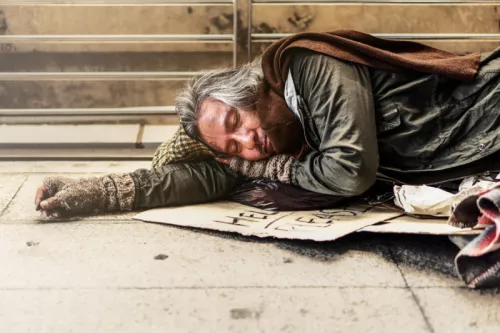Today there’s a lot of talk about justice. People expect it and even demand it. But what exactly is it, and why is it important? Throughout history, there have been widely different understandings of justice, with ideas of it shaped by both beliefs and events.
So, what effect will the coronavirus pandemic have on our view of human rights and human wrongs? Will we emerge from the crisis with the same concept of justice as we entered the crisis? Or will we see new ideas surface, or even old ideas of justice come to the fore?
The Bible identifies justice as a moral phenomenon, inseparable from righteousness. That’s why Amos (5:24) declared: “Let justice roll on like a river, righteousness like a never-failing stream!” Justice is about fairness in the way people are dealt with, promoting what is right, resisting what is wrong, and restoring a balance – which explains why on the dome above the Royal Courts of Justice stands a gilt bronze statue of Lady Justice. Holding a sword in one hand and scales in the other, this is a symbol of the authority needed to secure justice and maintain the rule of law, which, according to philosopher Vishal Magalwadi, is human civilisations greatest achievement of the last 1,000 years and a distinctly Christian gift to the world.
In this sense, justice is not only a cultural reflection of spiritual values, it is also very much connected with the concept of government (the right ordering of our relational priorities to both God and to each other), which explains why the advocacy work of the Evangelical Alliance has a strong focus on it.
For God, all authority exists for the purpose of government, and all government exists for justice. Thankfully, for God, all justice involves judgement and mercy. This is because judgement and mercy define each other and can’t exist in isolation. We can’t judge without the capacity for mercy, and we can’t be merciful without the need for judgement. This is a balancing truth that earthly authorities neglect at their peril. When justice and mercy are disconnected, the law becomes either trivialised or tyrannical. So, in light of who God is, He calls His people to “do justice and love mercy” (Micah 6:8) in a way that expresses His love with equity. This glorifies God and demonstrates the coming kingdom of Jesus.
In our demands for justice it is important to be mindful of the facts that all injustice exists because of us, not God, which places a responsibility on us to address it, that full justice will never be done until the kingdom fully comes, and that justice is inescapable. God guarantees that it will, ultimately, be done, which removes our need or desire to take injustice personally. As Paul affirms: “The sins of some are obvious, reaching the place of judgment ahead of them; the sins of others trail behind them” (1 Timothy 5:24). So justice will, indeed must, be done. In light of this eternal assurance, Christians have a civic duty to see that justice is seen to be done, that reconciliation is encouraged, and that redemption is always a possibility.
It’s worth noting that the Bible doesn’t describe justice as something that comes easy, but rather as something to be pursued, chased, sought out, struggled for. It shows that, until Christ returns, this wrestling for justice is the responsibility of all Christians, because from Genesis to Revelation, scripture shows us that God “hates” injustice. Whether its bribery, corruption or abuse of power, God calls for honesty and integrity in administering justice (Kings and Judges), and He also calls for advocacy for those affected by injustice (prophets – speaking truth to power) – all of which makes pursuing justice in and through authority structures a deeply biblical calling because, as Augustine observed, “justice being taken away then, what are kingdoms but great robberies? For what are robberies themselves, but little kingdoms?”
“The Lord loves righteousness and justice” (Psalm 33:5) because justice is about realising ‘shalom’ – putting things right. So there’s also a strong connection between justice and truth – what’s right. But what happens when God is separated from justice? What happens when justice is secularised? Today, justice (and the various freedoms and rights that attend it) is changing, not least because to the secular mind there is a legal solution to every problem.
In the absence of the possibility of human regeneration (repentance and new life) legislating is all the atheist has to deal with the vagaries of human nature. Consequently, whereas once our legal system operated by a Judaeo-Christian view that justice exists to protect the vulnerable, it now increasingly operates on the basis that what is not legal is forbidden, which requires the state to expand its authority into hitherto private spheres such as family life, relationships and even conscience, and entails what journalist Melanie Phillips describes as “the elevation of law to a doctrine of legal infallibility. The law itself has become a kind of secular religion, with lawyers acting as the new priesthood”.
Alongside this trend, in the absence of a biblical compass for what’s right and wrong, our society has become increasingly relativistic. A society in which scholar John Dominic Crossan observes: “There is no lighthouse keeper. There is no lighthouse. There is no dry land. There are only people living on rafts made from their own imaginations. And there is…the sea.”
Without reference to God – to a higher authority – justice becomes relative to human ideas and human will. The combination of an ‘imperial regulatory state’ imposing secular values in a society which lacks a common point of reference is dangerous for human rights and civil liberties, not least because the situation favours those with the wealth and the education needed to secure their own justice, and disfavours those who are poor and marginalised – those who simply lack the means to protect themselves against injustice, because as theologian Nicholas Wolterstorff put it, the poor are “not only disproportionately more vulnerable to injustice, but usually disproportionately
actual victims of injustice. Injustice is not equally distributed”.
In other words, the vast bulk of injustice falls upon the largest group of people who are least able to handle it, as evidenced by the recent cuts to legal aid, the rise of what the Law Society describes as ‘legal advice deserts’ in poor communities. As a lawyer friend once remarked, “We can all have justice, the question is: how much justice can you afford?”, which is in itself a grave injustice. The fact that “the righteous care about justice for the poor, but the wicked have no such concern” (Proverbs 29:7) serves to emphasise the need to provide not only relief and aid, but also to address structural issues through public policy and advocacy, or to quote evangelical pastor Dietrich Bonhoeffer, “We are not to simply bandage the wounds of victims beneath the wheels of injustice; we are to drive a spoke into the wheel itself.”
In an age of identity politics, often when people talk about justice, they really mean ‘just-us’, and Christians are not immune to this. After all, loving our enemies has never been easy. As the seismic economic impact of the coronavirus begins to shake the sandy foundations of our secularised society, there will be great challenges regarding issues such as judicial elitism and fair access to justice. But there will also be great opportunities to renew our society. In the cultural reset that is ahead, it is vitally important that evangelical Christians provide public leadership which restores a biblical model of justice that honours God and benefits all made in His image.
Meeting the challenges and seizing the opportunities that the crisis brings must become a strategic priority for the church. It will require courage and wisdom, but most of all faith in God’s abiding promise to “follow justice and justice alone, so that you may live and possess the land the Lord your God is giving you” (Deuteronomy 16:20).
"Without reference to God – to a higher authority – justice becomes relative to human ideas and human will."



